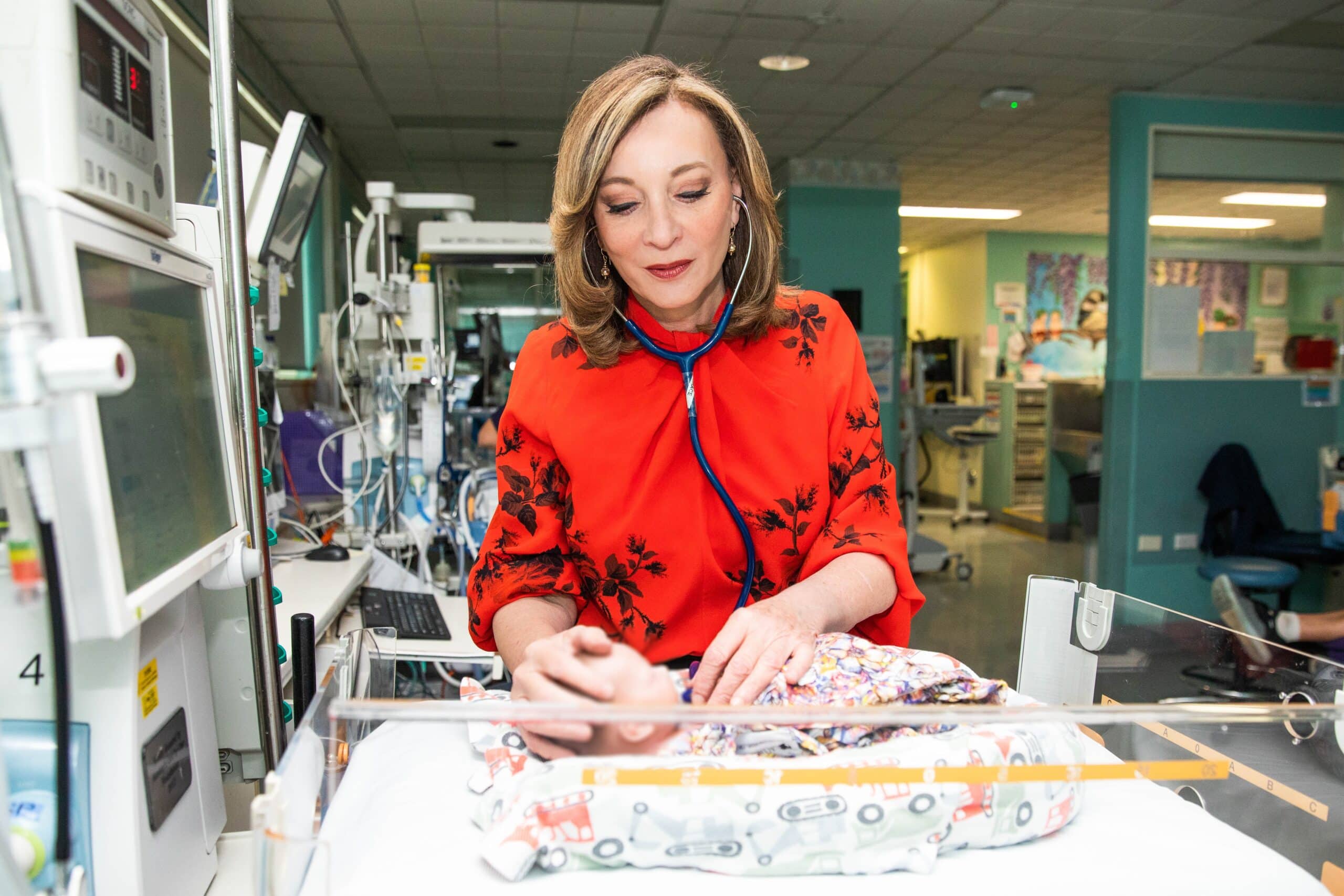
A new blood test that can pinpoint the root cause of brain injury in newborns could revolutionise treatment, Chair of Cerebral Palsy Research at Cerebral Palsy Alliance (CPA), Professor Nadia Badawi said.
The study, funded by CPA and carried out by researcher at Imperial College London, examined babies experiencing brain injury due to hypoxia, a lack of oxygen to the brain. By analysing patterns of gene expression in the blood, researchers were able to determine the cause of the injury and predict the likelihood of the newborn responding to cooling therapy, the “gold standard” treatment for brain injury in infants.
Professor Nadia Badawi said the findings could be “revolutionary”.
“The study investigated the differences in gene expression in newborns with hypoxic-ischaemic encephalopathy (HIE) – some from High Income Countries (Italy), and others from low- and middle-income countries (LMIC) in South Asia. Newborn encephalopathy is much more prevalent in South Asia than for Europe and Australia, and previous work has demonstrated that gold standard therapy – cooling – is ineffective and potentially dangerous in the LMIC settings. This study helps explain why and provides insights that will allow more effective treatment.
“The investigators found clear differences in gene expression between those infants born in HIC and those from LMIC. The differences in gene expression between the two groups suggest that the causal pathways to HIE may differ in the two socio-economic settings, and subsequently, the capacity to derive benefit from cooling is altered. “
Professor Badawi said the study provided valuable insights into the complex nature of brain injury in newborns and by better understanding the underlying mechanisms, clinicians could make more informed treatment decisions and improve outcomes for babies.
Globally, HIE is a leading cause of death and disability among babies born at full term, affecting around 3 million babies every year. Following oxygen deprivation, brain injury can develop over hours to months and affect different regions of the brain, resulting in a variety of potential neurodisabilities such as cerebral palsy or epilepsy. Lead investigator, Professor Sudhin Thayyil from the Department of Brain Sciences at Imperial College London said that the study showed that although cases of brain injury in newborns may appear similar, the underlying causes can be quite distinct.
This breakthrough blood test offers a non-invasive and efficient method for diagnosing brain injury in newborns, allowing for timely interventions and personalised treatment.